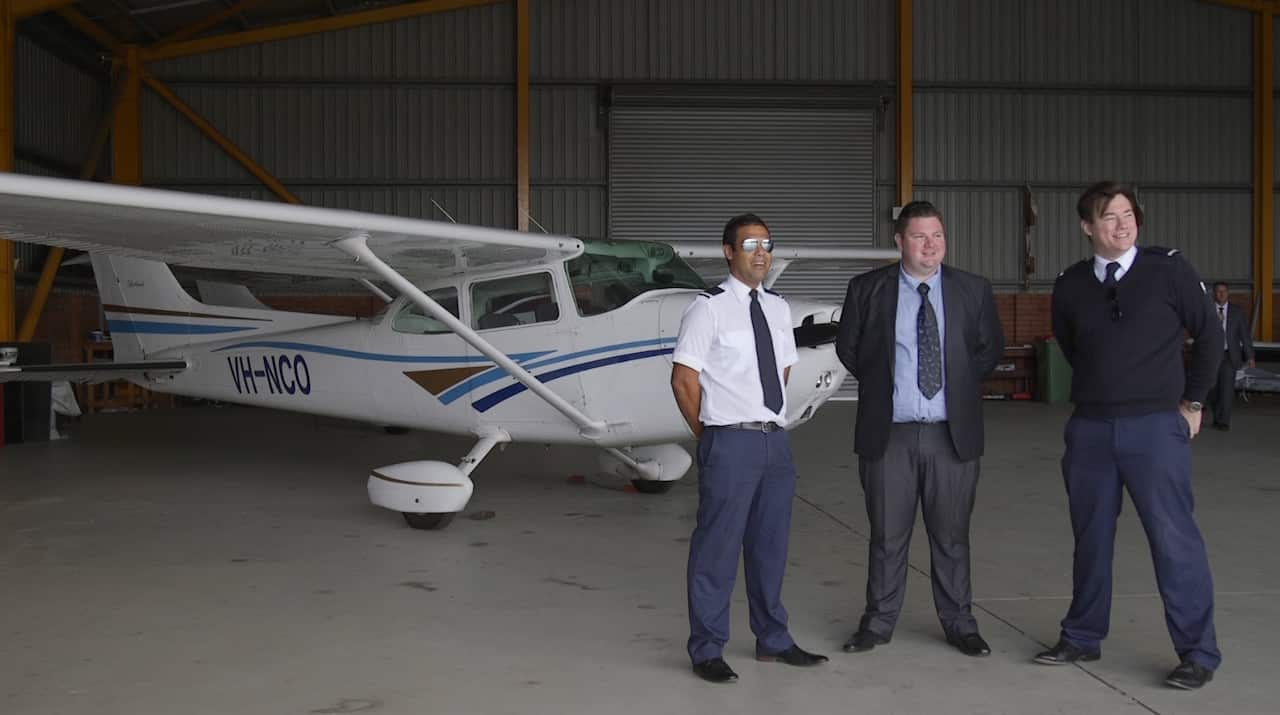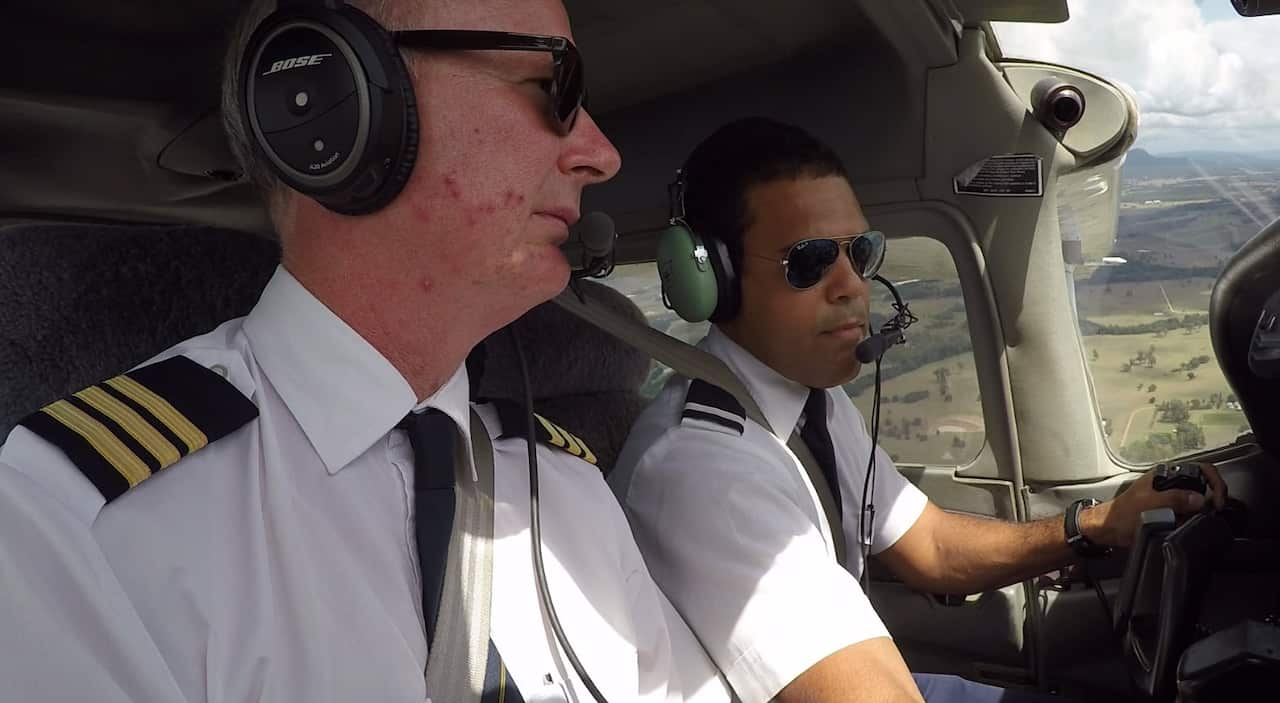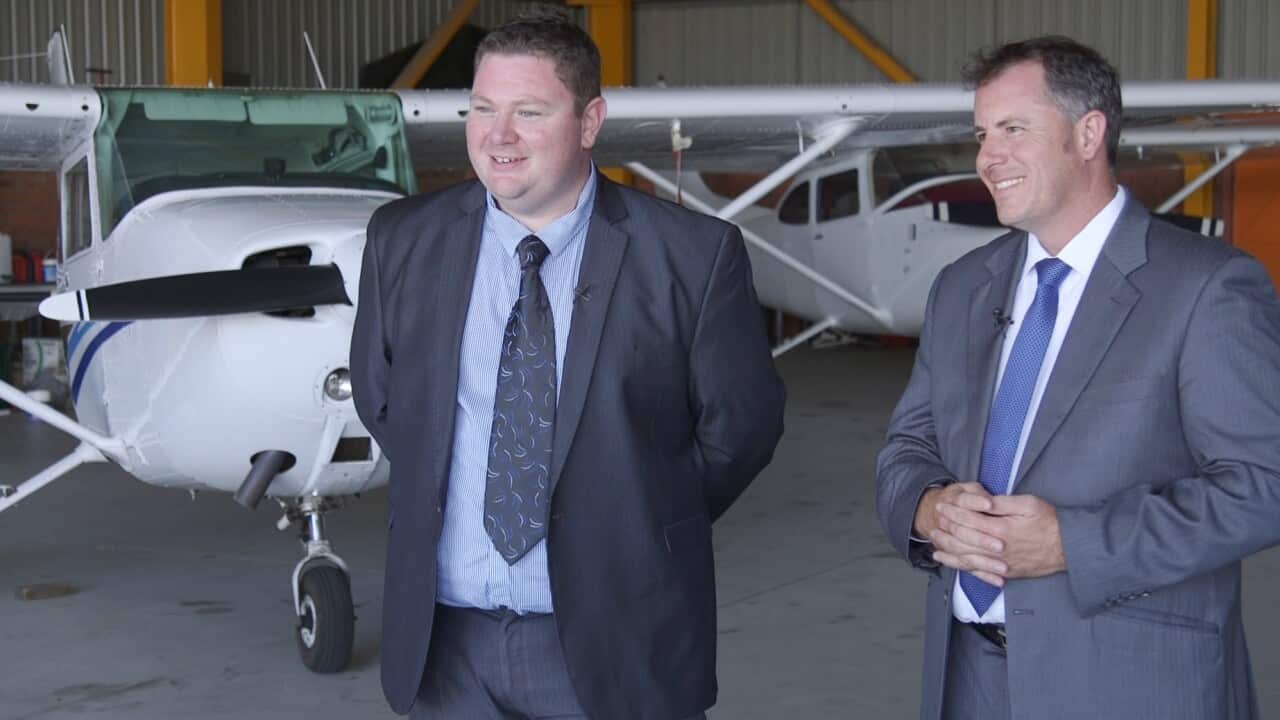Out of 11,000 professional pilots in Australia, how many do you think are Indigenous?
"There's not many," says Matthew Spicer. "Our biggest airline has five across its crew," David Coughtrie adds.
The pair - pilots, mates and now business partners - say that's not good enough. With their indigenous flying school, DreamSky Aviation, they're hoping to boost those numbers.
"For a lot of Aboriginal and Torres Strait Islander people, separation from home and country is a big issue so going off to mainstream universities can be daunting for them. So if they have an Indigenous flying school to come to, that nurtures them, it's going to make that transition a lot easier for them," Matthew explains.
A Wiradjuri man himself, he got the idea for the business while flying to Aboriginal communities in north-western Australia for aero-medical evacuations.
"It occurred to me being Aboriginal myself, that there were no Aboriginal pilots out there. And I thought there's a lot of money being spent in this area, why couldn't there be an Aboriginal flying school to train Aboriginal pilots to go back to their communities, to do this kind of work?"
Taking flight
Matthew and David invested $60,000 dollars of their own savings each to start DreamSky.
They launched with six casual staff, two students, and one plane that they own outright - though they lease four more as required.

But they know they need much more than $120,000 to keep them in business, so they've applied for a multi-million dollar federal government grant.
"There's a saying in aviation, how do you make a million dollars in aviation? You start with two [million]," David laughs. "So there's always going to be a cashflow issue in our preferred line of business."
Of their many expenses, fuel is one of the biggest. That's because students have to complete a minimum of 200 hours of flying time as part of their training. That equates to a fuel bill of anywhere from $15,000 - $30,000, or $75 - $150 an hour, depending on the aircraft.
With such high ongoing costs, David is honest about the stress they're under.
"This is a very important program and it needs to go well. If we fail at this being the only Indigenous flight school in the country, no one else will ever do it again. We can't - failure is no option."
For their students, DreamSky has already been a life changing experience.
Robert Wright from the Dunghutti nation near Kempsey says it's been an honour to be included in the program.
"As far as I know I feel like a bit of a trailblazer, no pressure. I'm thrilled there's actually something like this to pursue [aviation]."

His classmate Buen Jacobsen echoes that sentiment.
"I think empowerment of communities starts with institutions that care about a specific belief. And I think DreamSky does."
Council issues
To that end, Matthew and David say they wish they had more support from their local council in Cessnock.
"Council don't want to, or haven't adopted targets in a Reconciliation Action Plan so our relationship with Council is purely a business relationship which is unfortunate," Matthew says.
"When you think of other councils surrounding this area - Kempsey, Coffs Harbour, Walgett and Newcastle, they're all interested in wanting us to move there and offering financial support, and other support as well, that unfortunately we don't get here," adds David.
In a statement, Cessnock City Council told SBS that it's "committed to achieving the targets set out" under its Reconciliation Action Plan, and that it has "an inclusive approach to supporting all local businesses," providing marketing opportunities and access to information via its online platform.
Looking ahead
Despite their many challenges, the sheer love of flying is what keeps Matthew and David motivated.
They eventually hope to start a schools program, encouraging more Aboriginal youth to stay in school, and ultimately consider a career in aviation.
"When you look out that office window it's the greatest thing, I can't believe more people aren't doing it. To be able to pass this on to our nations true custodians is the biggest box ticker," David says with a smile.
Want to find out the secret to small business success? Tune into #BizSecretsSBS at Sundays 5pm on SBS, stream on SBS Demand, or follow us on Facebook, Twitter or Instagram.
Sharing business secrets of inspiring entrepreneurs & tips on starting up in Australia's diverse small business sector. Read more about Small Business Secrets
Have a story or comment? Contact Us


